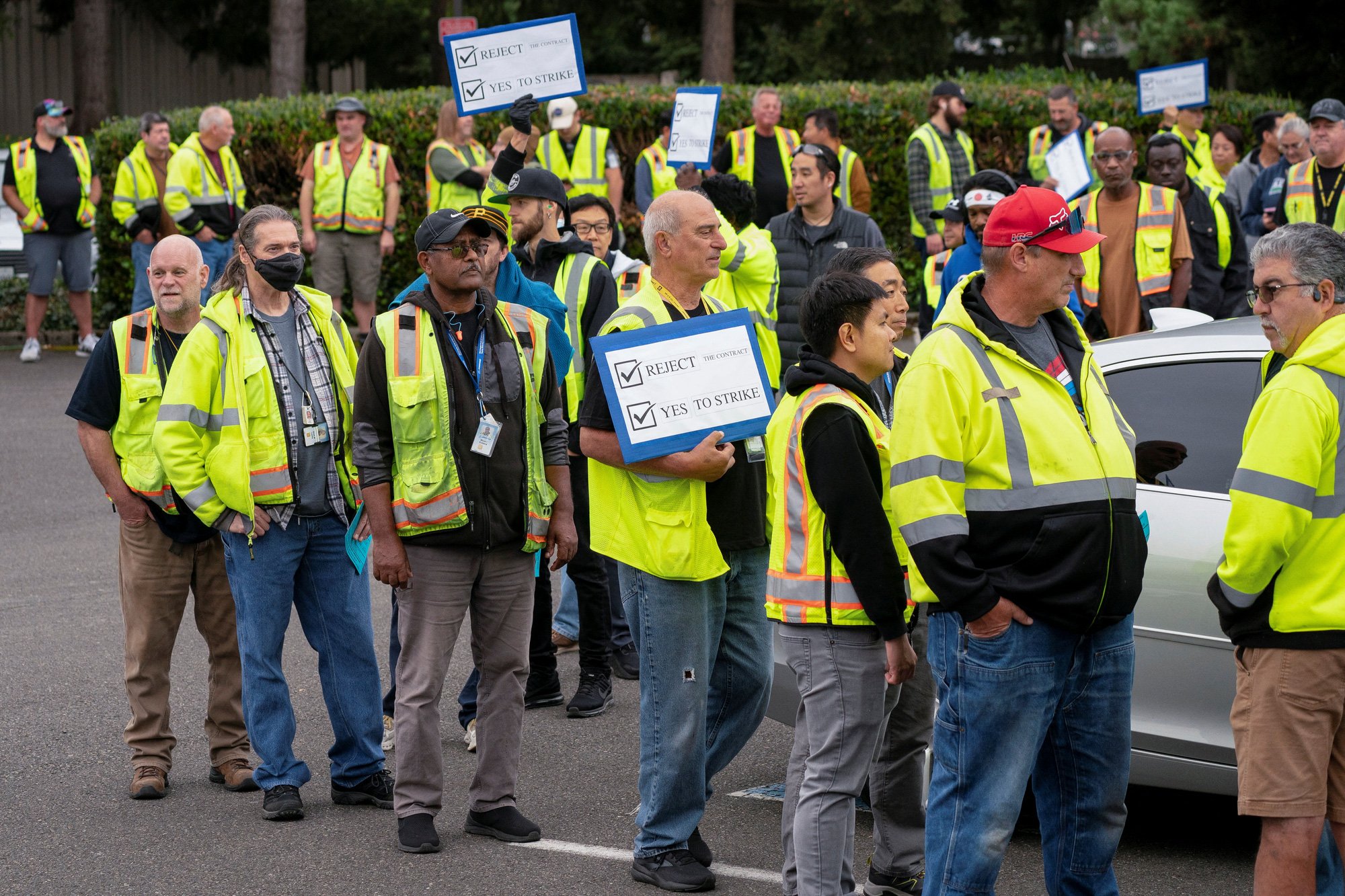
Boeing factory workers line up to vote on a strike in Washington, September 12 - Photo: REUTERS
According to Jon Holden, president of the International Association of Machinists and Aerospace Workers (IAM), 94.6% of hourly workers rejected the original contract agreement and 96% voted in favor of a strike.
“Our members have spoken very clearly tonight,” Holden said on September 12. “We will strike at midnight.”
The strike will force two major aircraft assembly plants in the Puget Sound area (Washington state) to temporarily suspend operations and affect about 33,000 workers.
According to a report from investment bank TD Cowen, if a strike lasts 50 days, Boeing could suffer losses of $3-3.5 billion.
This is the latest "uprising" by unions following a series of recent strikes in industries such as autos and entertainment.
Under new CEO Kelly Ortberg, Boeing had hoped that a 25 percent pay raise over four years and a commitment to invest in the Puget Sound region would help stave off a strike as the company struggled to stabilize after a series of safety scandals.
CEO Ortberg argued that this collective wage increase is the largest in history and that a strike "would put our collective recovery in jeopardy, erode customer confidence and impact our ability to navigate the future."
However, workers reacted strongly to this deal. They demanded a 40% pay increase.
Other points of contention include the agreement not to restore the pension program, as well as Boeing's commitment to build future planes in the Seattle area.
Critics have called it an "empty commitment" as there are no promises after the four-year contract ends.
“They talk about a 25% pay raise but it’s not happening,” said Paul Janousek, who voted to strike after concluding that Boeing’s information was “misleading.”
Mr. Janousek, 55, who has worked at Boeing for 13 years, said his salary increase was only about 9% after Boeing eliminated its annual bonus.
Some workers also expressed discontent with former CEOs Dennis Muilenburg and Dave Calhoun, who received millions of dollars when they left the company, despite Boeing's many difficulties.
“Striking is not the ideal option, but it is the best thing for your long-term benefit,” said Joe Philbin, a mechanic who has worked at Boeing for six months.
The last Boeing workers' strike in 2008 shut down factories for 52 days and cost the company about $100 million a day in lost revenue.
Source: https://tuoitre.vn/96-cong-nhan-nha-may-boeing-o-bo-tay-dinh-cong-20240913154331676.htm


![[Photo] Comrade Khamtay Siphandone - a leader who contributed to fostering Vietnam-Laos relations](https://vstatic.vietnam.vn/vietnam/resource/IMAGE/2025/4/3/3d83ed2d26e2426fabd41862661dfff2)
![[Photo] Prime Minister Pham Minh Chinh receives CEO of Standard Chartered Group](https://vstatic.vietnam.vn/vietnam/resource/IMAGE/2025/4/2/125507ba412d4ebfb091fa7ddb936b3b)

![[Photo] Special relics at the Vietnam Military History Museum associated with the heroic April 30th](https://vstatic.vietnam.vn/vietnam/resource/IMAGE/2025/4/3/a49d65b17b804e398de42bc2caba8368)
![[Photo] Prime Minister Pham Minh Chinh receives Deputy Prime Minister of the Republic of Belarus Anatoly Sivak](https://vstatic.vietnam.vn/vietnam/resource/IMAGE/2025/4/2/79cdb685820a45868602e2fa576977a0)

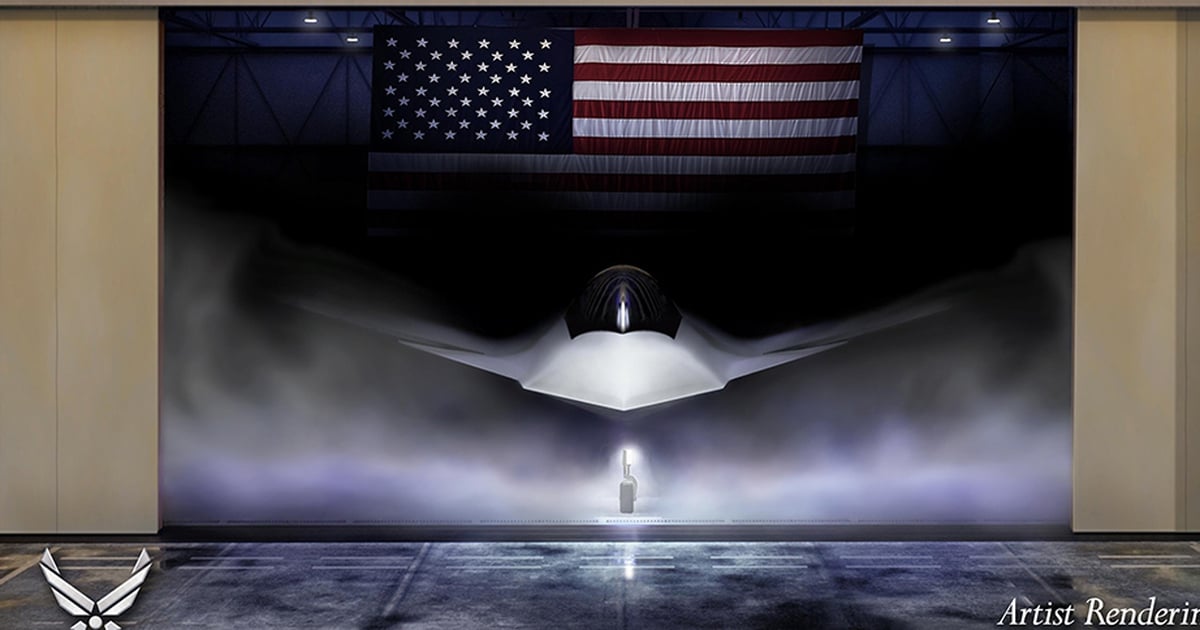



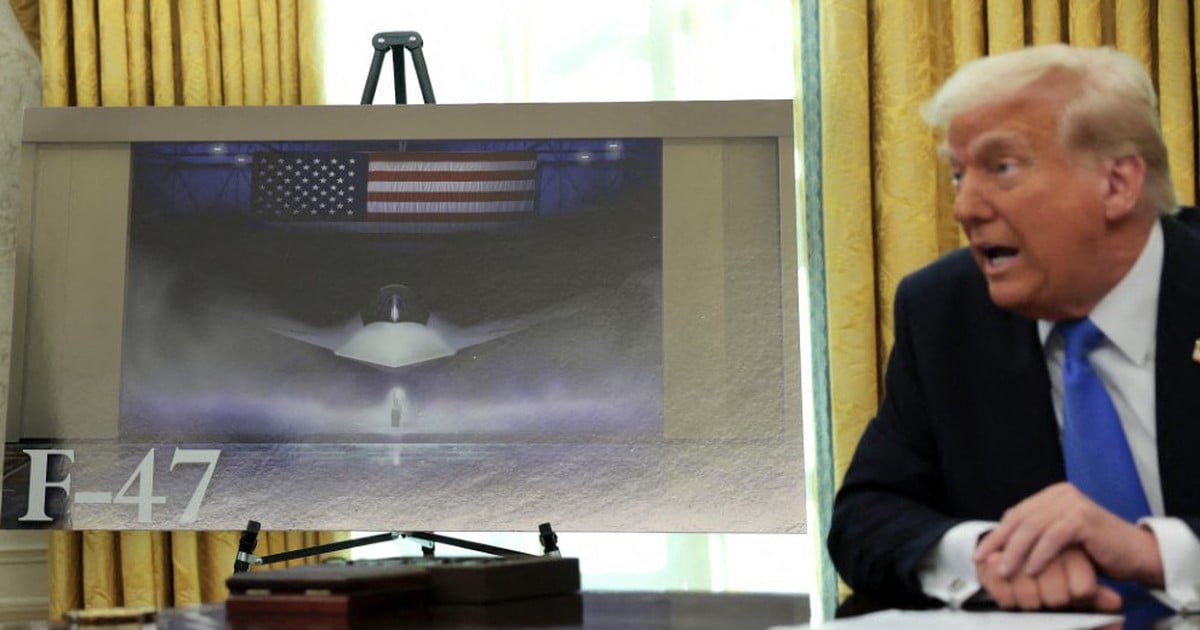




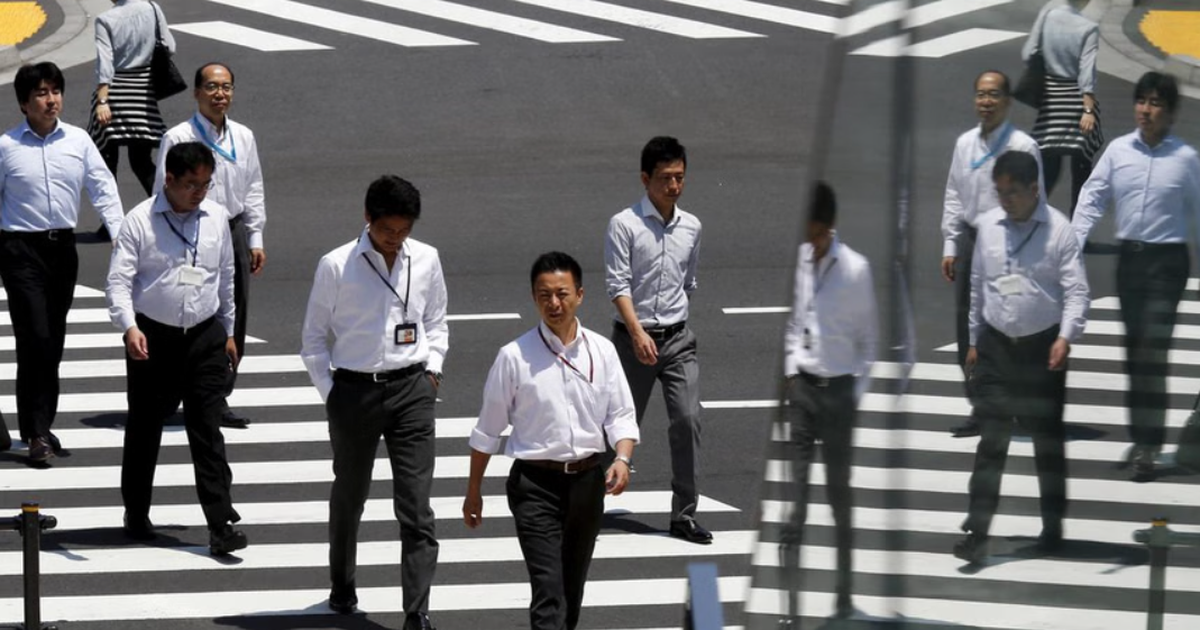
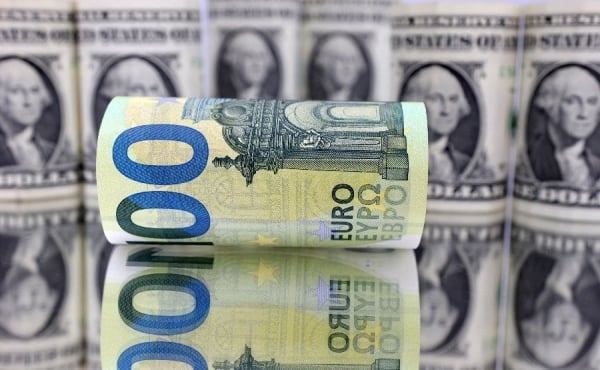

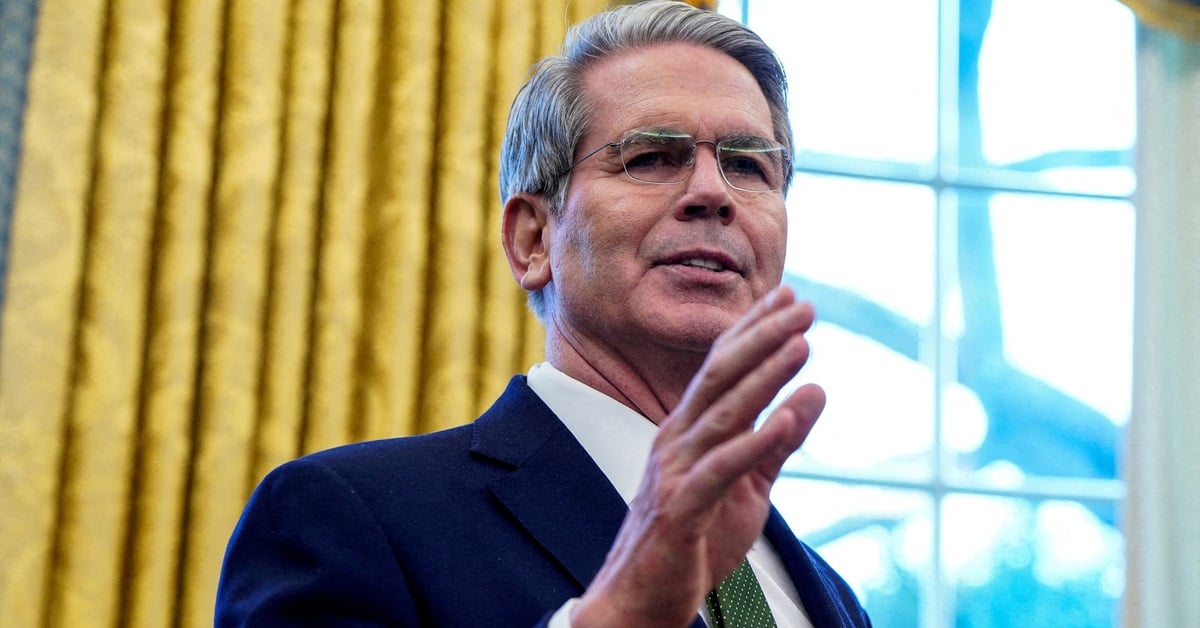










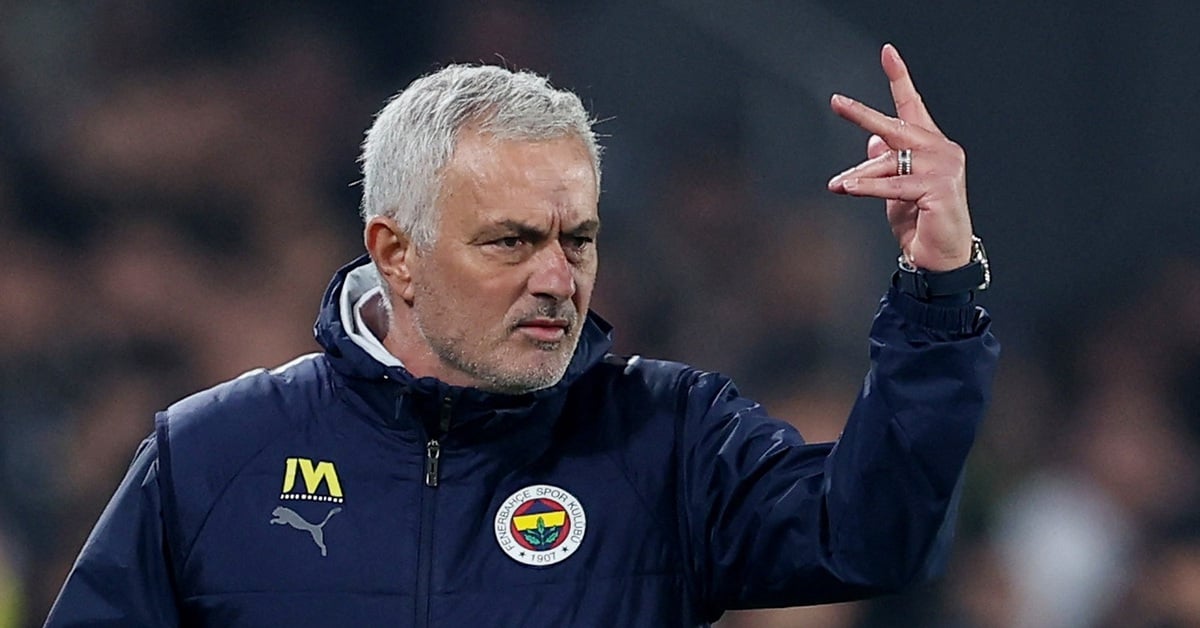

































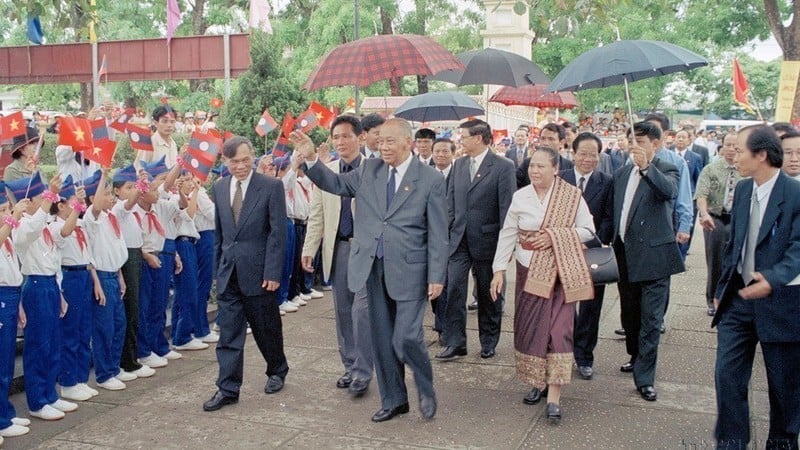
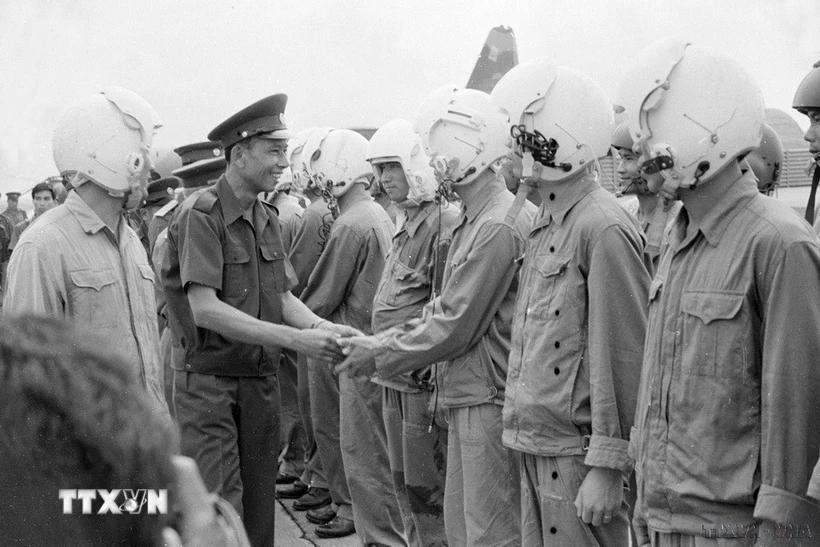






























Comment (0)